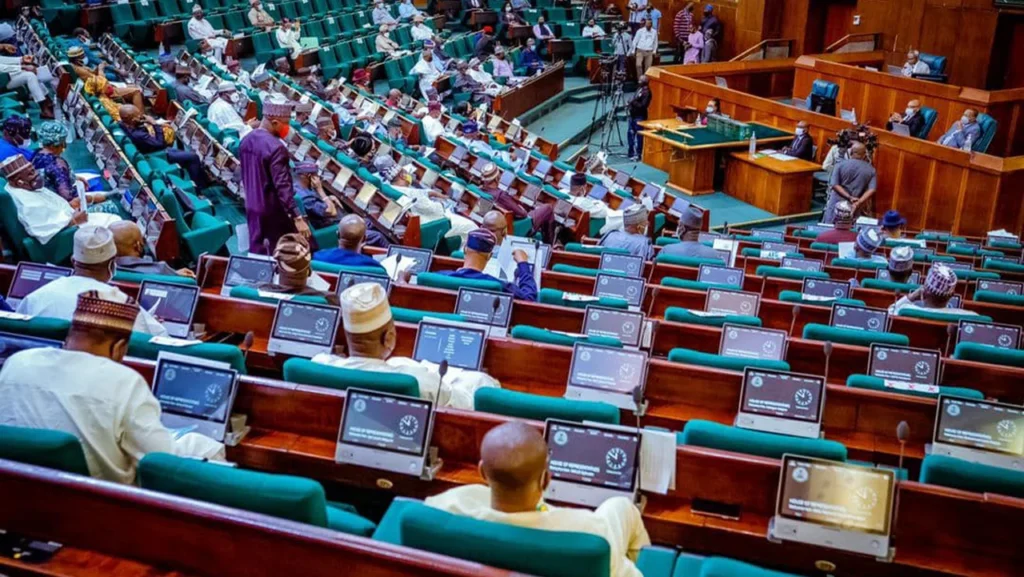The National Assembly has approved the declaration of a state of emergency in Rivers State by President Bola Tinubu, following a prolonged political crisis that has paralyzed governance in the state. The approval, ratified through a voice vote, includes the six-month suspension of Governor Sim Fubara, his deputy, Ngozi Odu, and all elected members of the Rivers State House of Assembly.
The Senate and House of Representatives held closed-door sessions to discuss the proclamation. The Senate invoked Section 305(2) of the 1999 Constitution, which allows the president to declare a state of emergency with the approval of two-thirds of the National Assembly.
The Senate recommended the establishment of a committee of eminent Nigerians to mediate between the warring factions in Rivers State. The House of Representatives introduced an amendment allowing for a flexible review of the emergency rule, potentially lifting it before the six-month duration if the situation improves.
Senate President Godswill Akpabio emphasized that the decision was made in the interest of restoring peace and stability in Rivers State. He stated, “It is our hope that this declaration will bring peace and ensure speedy resolution of all issues that led to the impasse.” House Leader Julius Ihonvbere urged members to support the president’s efforts, stressing the need for dialogue to establish lasting peace. Deputy House Spokesman Philip Agbese proposed the formation of a national mediation committee to facilitate reconciliation between Governor Fubara and the state Assembly.
The declaration has sparked widespread condemnation from various quarters. The South-South Governors’ Forum, led by Bayelsa State Governor Douye Diri, argued that the conditions for declaring a state of emergency, as outlined in Section 305(3) of the Constitution, were not met.
They called for the immediate rescission of the emergency rule. Peter Obi (Labour Party), the former presidential candidate, described the action as fostering impunity and undermining democracy.
He urged the National Assembly to uphold constitutional principles and reject the removal of elected officials. Mike Ozekhome (SAN), the legal luminary, condemned the declaration as a violation of the Constitution, stating that neither the president nor the National Assembly has the power to remove a sitting governor.
Civil Society Organizations (CSOs), including the Civil Liberties Organisation (CLO) and Resource Centre for Human Rights and Civic Education (CHRICED), called for the immediate reversal of the emergency rule, emphasizing the need to respect democratic processes and human rights.
President Tinubu and the All Progressives Congress (APC) lauded the National Assembly for its patriotic stand, describing the move as critical to restoring stability and protecting national economic assets. Chibudom Nwuche (Former Deputy Speaker) praised the president for saving Rivers State from anarchy and called for the expeditious ratification of the emergency rule.
The declaration empowers the newly appointed sole administrator, Obot-Ette Ibas, a former Chief of Naval Staff, to oversee the state’s affairs during the six-month period. The move aims to address the breakdown of governance, protect critical infrastructure, and facilitate dialogue among conflicting parties. However, critics argue that the action sets a dangerous precedent for executive overreach and undermines true federalism.
The National Assembly has mandated the establishment of a joint ad hoc committee to oversee the administration of Rivers State during the emergency period. A committee of eminent Nigerians will be set up to mediate between the warring factions and ensure a peaceful resolution to the crisis. Stakeholders have called for constructive dialogue and adherence to constitutional processes to restore stability in Rivers State.
The approval of the state of emergency in Rivers State marks a significant intervention by the federal government to address the political crisis that has plagued the state. While the move has been praised for its potential to restore order, it has also drawn criticism for its perceived disregard for constitutional principles.
The coming months will be crucial in determining whether the emergency rule achieves its intended goals or further exacerbates tensions in the oil-rich state.
Stay tuned to 9am News Nigeria for more Breaking News, Business News, Sports updates And Entertainment Gists.
















